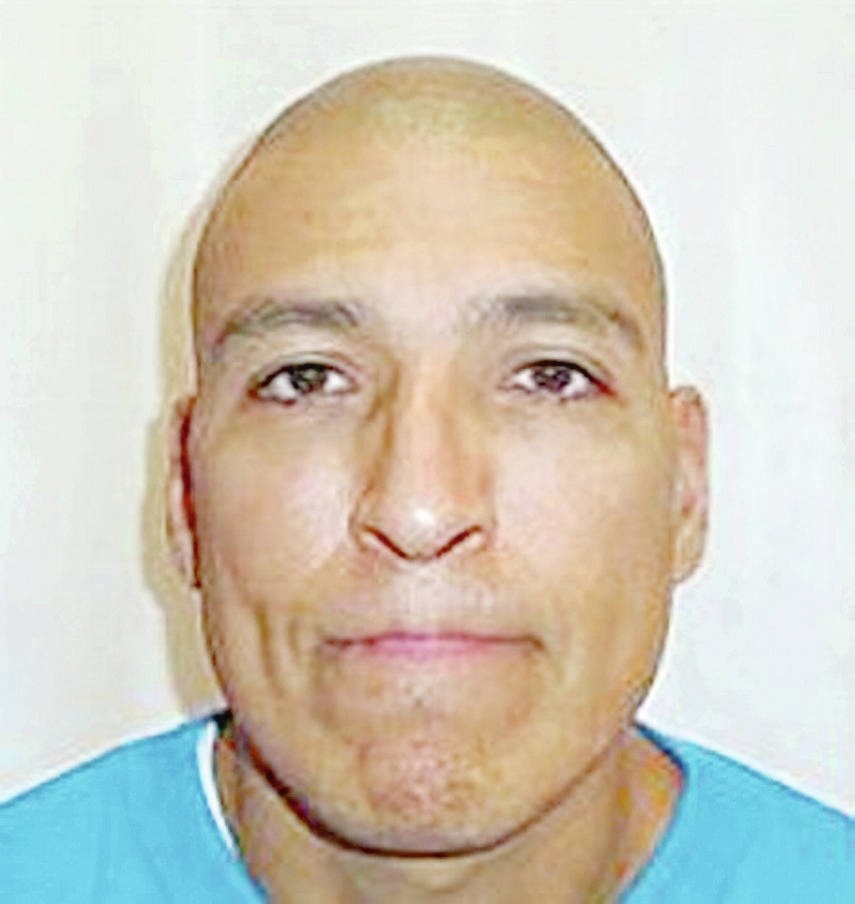An inmate serving a life sentence for murder at William Head Institution walked away at low tide after a series of conflicts that began when a correctional officer slammed a door in his face.
That information was revealed Thursday at James Lee Busch’s sentencing hearing in Western Communities provincial court for the prison break with inmate Zachary Armitage on July 7, 2019.
Busch, a 43-year-old man of Cree ancestry, told Judge Ronald Webb that he had a difficult upbringing and couldn’t get help from the correctional system when he most needed it.
“When the door slammed, it put myself into the fight-or-flight PTSD as a child, because growing up, the only time a door slammed was when a mother or father or a drunk was going to kick your butt,” said Busch.
The door-slamming incident led to more conflicts with correctional officers, said Busch. “A system that’s geared to correct us is uncorrecting us and leading to more pain,” he said.
On the day of the escape, Busch went for a walk after dinner, said defence lawyer Roberto Alberto.
“The tide was out, quite out, and Mr. Busch at that very moment felt frustrated and, in his own words, decided to just go for it,” said Alberto. “He was impulsive and made a bad decision.”
While Busch was present for the 6 p.m. head count on July 7, prosecutor Susan Rupertus said, staff discovered during the 11 p.m. head count that both he and Armitage were missing. Prison surveillance video shows them leaving the southside shoreline and heading to Pedder Bay at 6:45 p.m.
Police were called at 1:15 a.m. on July 8 and deployed police dogs and helicopters to try and find the two escapees. The next evening, by chance, the two began talking to an off-duty RCMP officer who was walking his dog on the Songhees walkway. The officer recognized the men and called the report in to police while keeping them under surveillance, said Rupertus.
Victoria police identified Busch and Armitage through photos and their tattoos.
When he was recaptured, Busch had tools, $50 in coins and a knife in his backpack, said Rupertus, who sought a 24-month sentence because of Busch’s lengthy criminal record. Armitage, who had five prior escape convictions and a less serious criminal record, also pleaded guilty to the escape and received a 12-month additional sentence, court heard.
Alberto described Busch’s difficult and painful upbringing in Cold Lake First Nations in Alberta and asked the court to impose a six-to-12-month sentence.
“He suffered immensely as a young child. He was exposed to substance abuse, violence, family fragmentation and poverty,” said Alberto. “He began using drugs and alcohol before he was even the age of 12.”
Busch’s mother was a teenager when she gave birth to him, Alberto said. His father trafficked drugs.
Busch was apprehended by the Alberta child-welfare system at age nine and raised by his maternal grandmother, said Alberto. He was sexually abused before the age of 10 and began getting in trouble with the law.
When he escaped, Busch was serving a life sentence after being convicted of second-degree murder in 2010. He would have been eligible for day parole in July 2022 and full parole in 2025, said Alberto.
Before Busch was transferred to William Head, he participated in several Indigenous initiatives at Mission Institution that gave him a better understanding of his culture and his background, Alberto said. His urine tests for five years were clean of drugs.
Elders helped Busch deal with what he described as “an inner shame of being Indigenous,” his lawyer said. “It was a healing journey. He began to get a sense of who he was, why he was ashamed of being Indigenous and why so many things happened to him.”
Busch was initially doing OK when he was transferred to William Head in November 2018, but the following February, he began to run into issues with the staff.
After the door was slammed in his face, the conflicts escalated with staff and other inmates, and his engagement with the elders began to drop.
The judge acknowledged Busch’s difficult background, but said his criminal background is also troublesome.
“He’s an Indigenous person who has spent most of his life in the criminal system,” said Webb. “He described having a tough life and not receiving appropriate help when required.”
Busch received a 12-month sentence for the prison break, concurrent to the life sentence he is already serving.



